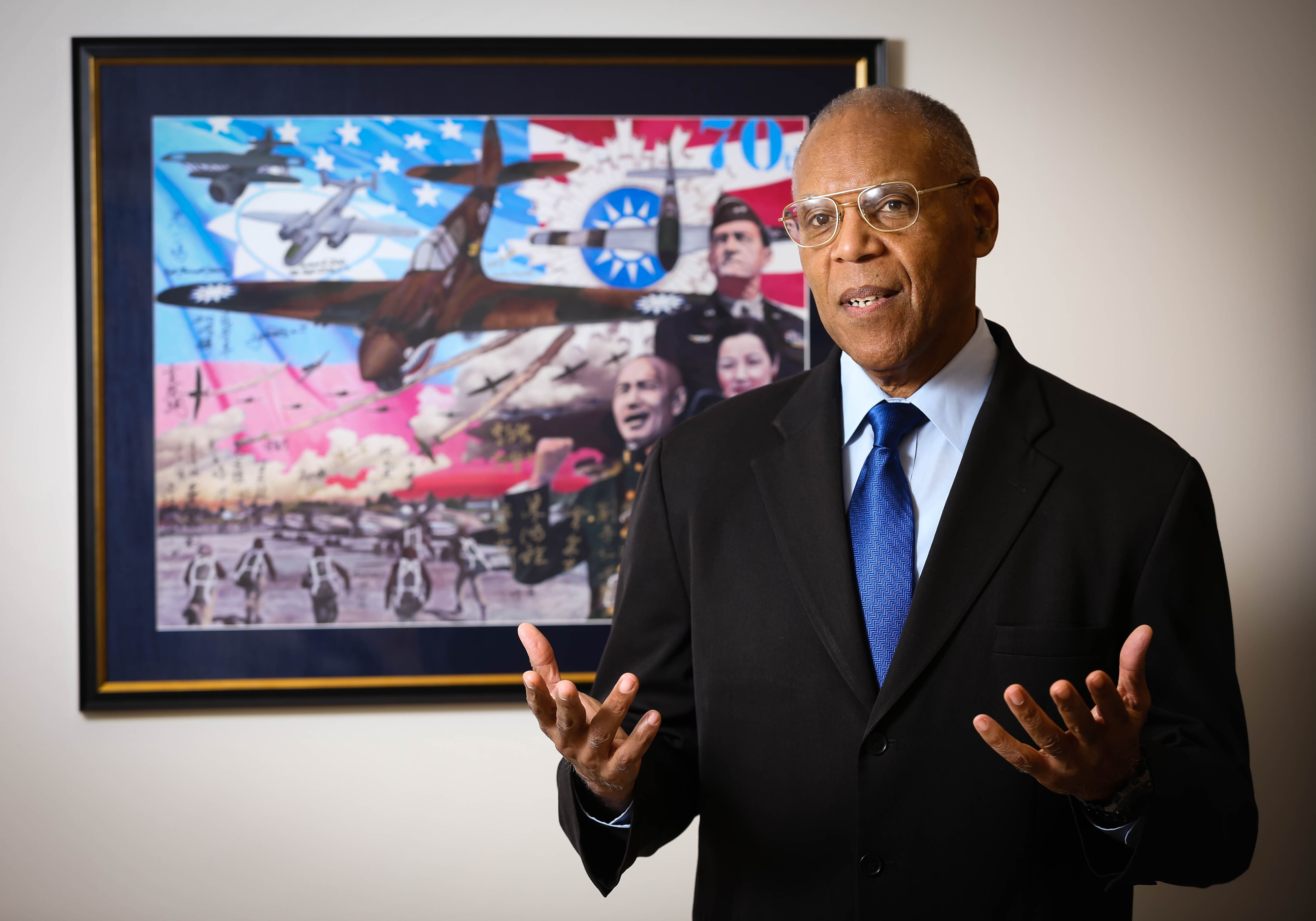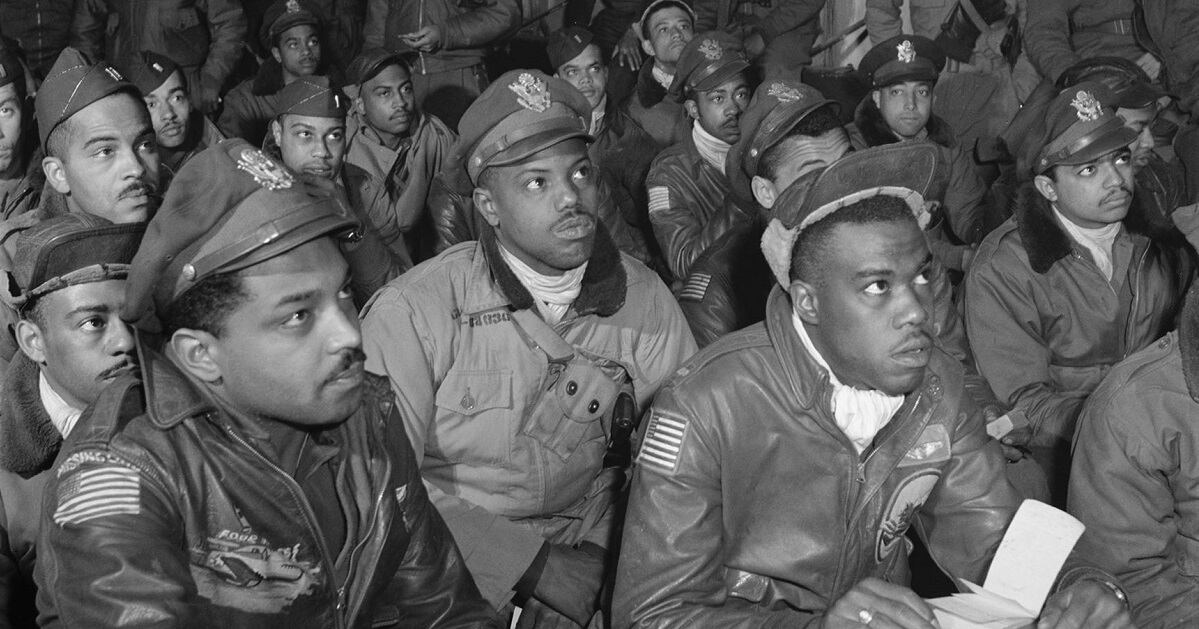In the 21st century, institutional racism is boring and easy to miss. Our combined 18 years of experience as Air Force pilots has led us to conclude that racism, in an Air Force flying squadron, revolves around our inability to fully possess what we would call the “good dude factor” (GDF).
In a flying squadron, the GDF is a three-part concept that requires an individual to blend in with the community socially, be operationally competent and positively impact the organization. The GDF is a necessary characteristic to maximize opportunities in the Air Force.
A leadership theory developed by social psychologists John R.P. French and Bertram Raven in the late 1950s and early ’60s details six bases of power: coercion, reward, legitimate, expert, referent and informational. The GDF is a combination of referent and expert power. Referent power emanates from being highly liked and comfortable around peers, subordinates and superiors. Leaders with referent power are seen as role models. Expert power is an in-depth knowledge of the organization’s core tasks. Leaders with expert power persuade organizations through their performance and skill sets.
RELATED

Institutional racism is boring because gatekeepers hold the referent power to sabotage, without fanfare, an individual who otherwise meets all qualifications. Daniel experienced this when his second-in-command told him that, although his flying skills were superior, he would be “weeded out” of the F-22 community if he did not subdue his personality. Daniel’s presence made his superiors feel uncomfortable. This is unsurprising, given only 1 percent of the Air Force’s fighter pilots are Black. The gatekeepers saw his confidence as an unacceptable bravado, making them unable to see him as a role model.
Institutional racism is easy to miss because even with the credentials and experience exhibiting expert power, airmen’s voices can be quieted based on the GDF. Nathan experienced this when his commander questioned his admittance into an elite Air Force academic program that develops future strategic leaders. Nathan’s blackness blinded his commander’s ability to see and appreciate his qualifications. It took advocates from outside of his unit for his orders to be approved.
In the Air Force, everything from administering punishments to offering opportunities is dependent on an individual’s GDF. The Air Force’s recent report that Black airmen are twice as likely to be punished for the same mistake as their white counterparts illustrates that the Air Force resembles America’s wider systemic racism. Like the nation at large, the Air Force has a subculture that disadvantages Black airmen in two ways. For every detractor a white airman has, the Black airman has two, and for every advocate a Black airman has, the white airman has two.
RELATED

We first learned that our blackness limits our GDF during our four years at the Air Force Academy. Boring racism exists at USAFA because some classmates, superiors and subordinates with referent power attributed our opportunities there to a non-existent Black quota system that took away opportunities for qualified white cadets. Despite Nathan’s superior performance and Daniel’s below-average performance there, we came up short of obtaining the universal GDF.
Boring racism is common at pilot training. For the opportunity to obtain the GDF, instructors required we smile and raise our voices’ pitch, so we did not intimidate others when we spoke. Despite Daniel’s superior performance and Nathan’s below-average performance, our instructors told us we would have been better off had we blended in more. They informed us that to gain the GDF, in the operational Air Force, we had to hide stereotyped hallmarks of blackness by any means necessary.
Over our Air Force careers, the only time we blend in is when our aircraft are wheels up. Although our flying hours are rewarding, mission accomplishments lose their luster when we return to the squadron, and co-workers remind us how we fall short of the GDF standard. Like female and openly gay male aviators, we fall victim to the forceful voices in the room who can disguise their prejudice through subjective GDF shortcomings. These prejudices are only apparent when trends emerge: when every woman receives the same critique about an off-putting voice and poor disposition; when an air of caution fills the squadron bar when openly gay pilots walk in; when every Black airman is told to fix his or her attitude and military bearing.
The challenge for the Air Force in the 21st century is confronting critiques that center on a person’s lack of GDF. Anointing the GDF is idiosyncratic and limits our nation’s ability to recognize and overcome future problems. Instead, the Air Force needs to establish a culture that drives conformity to values that support objective merit.
If the GDF continues, the Air Force will not recruit and retain the nation’s best talent. Americans who do not fit the archetype will not join or will leave for the private sector, and our ability to defend the country we love will suffer. The Air Force is adept at eliminating the enemy abroad. To remain dominant, it needs to eliminate the enemy of boring racism home station.
Nathan Dial and Daniel Walker are active-duty Air Force officers and pilots. The opinions expressed are the personal views of the authors and do not necessarily represent the views of the U.S. Air Force, the Department of Defense or Air Force Times. If you would like to write a commentary in response, or on any other Air Force issue, please contact the editor, Kent Miller, at kmiller@airforcetimes.com.





